Green transformation in IPs driving new investment waves
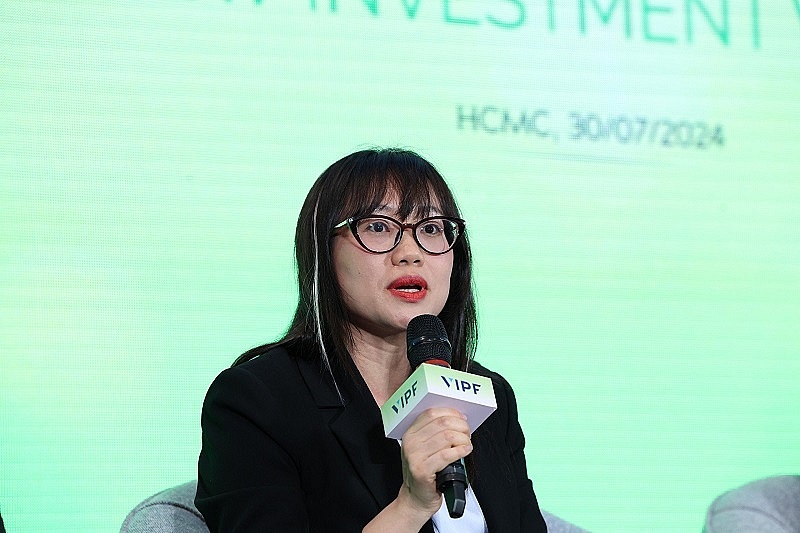 |
| Vuong Thi Minh Hieu, deputy general director of the Department of Economic Zones Management |
At the second session at the Vietnam Industrial Park Forum 2024 yesterday (July 30), on the theme "Green transformation in industrial parks: A driver for attracting new investment waves", experts and businesses highlighted the importance of ecological industrial parks (IPs).
Vuong Thi Minh Hieu, deputy general director of the Department of Economic Zones Management under the Ministry of Planning and Investment (MPI), said the transformation to eco-IPs started in 2014 with the support of international organisations.
"However, the green transformation of IPs is currently struggling with difficulties related to water reuse and energy use due to a lack of guidance documents from authorities. Besides, converting to an eco-IP is very costly, and preferential and supporting policies are not commensurate with the costs incurred," Hieu said.
To overcome these challenges, the MPI will coordinate with ministries and agencies to speed up the drafting of guiding documents, as well as connect with investment funds and financial institutions to source preferential capital for businesses with green transformation ideas and solutions, she added.
"The MPI will be reporting to the government the outline of the Law on Industrial Parks and Economic Zones. Currently, they are managed by other laws such as the Law on Real Estate Business, the Land Law, and the Law on Environmental Protection," Hieu said.
When the Law on Industrial Parks and Economic Zones is completed and approved by the National Assembly, it will supplement the policy mechanisms to encourage the development of eco-IPs.
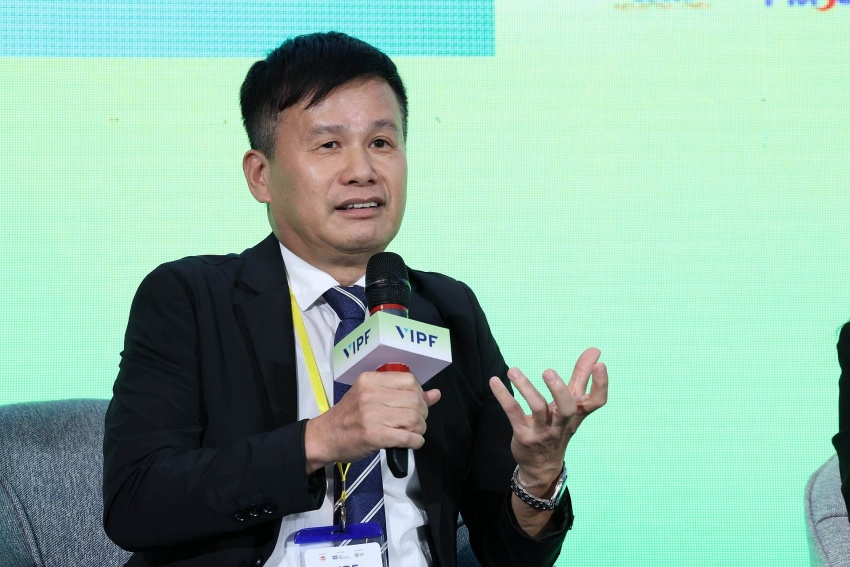 |
| Pham Hong Diep, chairman of Shinec |
Pham Hong Diep, chairman of Shinec, outlined the value of ESG standards because they meet the wishes of numerous investors in electronics, high technology, and export manufacturing because of their high green content.
"If eco-IPs can achieve ESG certification that is compatible with standards set by investors, it will be easy for them to decide where they want to invest,” Diep said.
An example is Nam Cau Kien IP in Haiphong. Diep said it was difficult to implement ESG standards because of the strict criteria. Nam Cau Kien IP was built in 2008, so the drainage system for rainwater, surface water, and wastewater was concrete. The drains also often vibrated, and the ground had subsided due to the heavy trucks transporting goods to and from the factories.
To deal with the problem, Shinec bought HDPE pipes from Thieu Nien Tien Phong Plastic JSC to replace the concrete pipes and rebuild the wastewater treatment system to stop untreated wastewater from being discharged into the environment.
“It is a headache for an investor to spend almost $1 million to fix an IP. However, we had no other way to increase our competitiveness," said the chairman of Shinec.
Additionally, Shinec has built a symbiotic relationship with investors to create value from waste treatment in IPs, generate profits, and raise more capital to improve the environment. This has made investors and international organisations change their thinking about IPs.
"Greening IPs is an inevitable trend, not an option, so Vietnamese IP developers need to keep up,” Diep said. He also suggested building laws on IP investments and the circular economy, which have been implemented by China, South Korea, and Japan already.
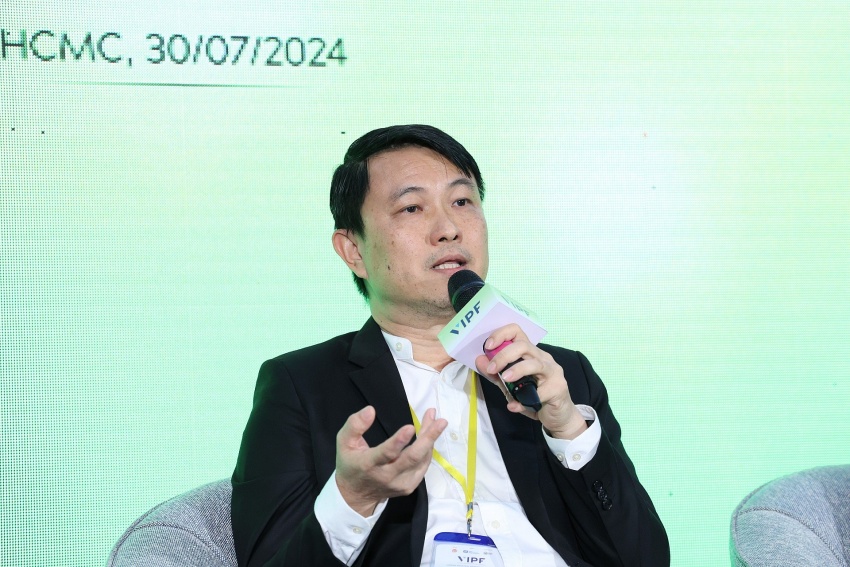 |
| Ben Ding Khoon Yew, general director of Soilbuild International (Vietnam) |
Ben Ding Khoon Yew, general director of Soilbuild International (Vietnam), highlighted the importance of green transformation. The journey of Soilbuild started in 2010 before sustainability became a key theme in Asia. Solaris@One North, a business hub in Singapore, had achieved the then-highest sustainability standards of Green Mark Platinum in Singapore. Key features included using natural lights and ventilation, green belts and shields, and water harvesting.
Numerous Soilbuild’s buildings have achieved Green Mark and LEED Platinum status since then. "We have won bidding for numerous key projects thanks to the green factor," Yew emphasised.
With the progression of technology, the latest Green Mark Platinum building, the Tai Seng Exchange (TSX) in Singapore, has integrated wind simulation to optimise ventilation, sensors, a lift control system, and a new generation building management system. Soilbuild obtained a green loan for the building.
“Coming from Singapore, we have benefited from the adoption of new technology. Through the years, we have been pushing the boundaries on our sustainability journey to reduce overall energy consumption and emissions and secure a more sustainable future and resilient urban landscape for future generations. We are committed to promoting sustainable development in Vietnam,” Yew said.
In Vietnam, Soilbuild's first ready-built factory is being developed in Nghe An to LEED certification standards, continuing the sustainability journey from its home country Singapore.
“Soilbuild was an early adopter of sustainability. Our approach to integrating ESG policies into its building design emphasises multiplying the green to ensure that sustainability is embedded at every stage of the asset's life cycle — from design to construction, operation and maintenance, and occupiers' operations,” he said.
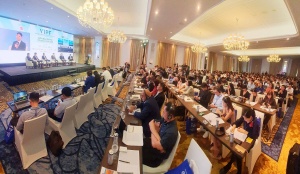 | Industrial property event to take place in Ho Chi Minh City on July 30 The Vietnam Industrial Property Forum (VIPF) 2024, organised by Vietnam Investment Review and in coordination with the Vietnam Industrial Real Estate Association, will take place in Ho Chi Minh City on July 30. |
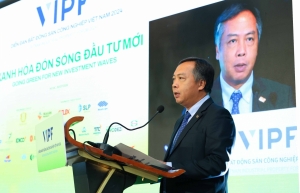 | VIPF 2024: Going green for new investment waves The Vietnam Industrial Property Forum (VIPF) 2024, organised by Vietnam Investment Review in coordination with the Vietnam Industrial Real Estate Association, is taking place in Ho Chi Minh City from July 30 with the theme “Going green for new investment waves”. |
 | Sustainability included in all Soilbuild’s buildings Soilbuild has been applying and including sustainability in its industrial parks and factories for a long time to level up the values and positions of industrial property. |
What the stars mean:
★ Poor ★ ★ Promising ★★★ Good ★★★★ Very good ★★★★★ Exceptional
Related Contents
Latest News
More News
- An Phat 5 Industrial Park targets ESG-driven investors in Hai Phong (January 26, 2026 | 08:30)
- Decree opens incentives for green urban development (January 24, 2026 | 11:18)
- Public investment is reshaping real estate’s role in Vietnam (January 21, 2026 | 10:04)
- Ho Chi Minh City seeks investor to revive Binh Quoi–Thanh Da project (January 19, 2026 | 11:58)
- Sun Group launches construction of Rach Chiec sports complex (January 16, 2026 | 16:17)
- CEO Group breaks ground on first industrial park in Haiphong Free Trade Zone (January 15, 2026 | 15:47)
- BRIGHTPARK Entertainment Complex opens in Ninh Binh (January 12, 2026 | 14:27)
- Ho Chi Minh City's industrial parks top $5.3 billion investment in 2025 (January 06, 2026 | 08:38)
- Why Vietnam must build a global strategy for its construction industry (December 31, 2025 | 18:57)
- Housing operations must be effective (December 29, 2025 | 10:00)

 Tag:
Tag:


























 Mobile Version
Mobile Version